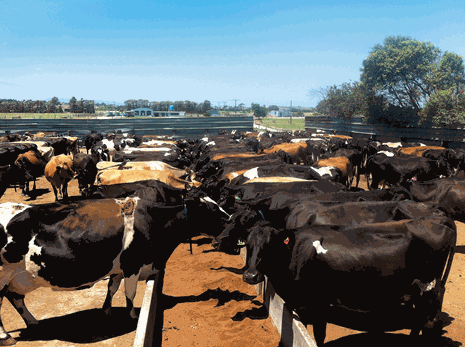Farm advice: Making money, not just milk
DairyNZ takes a look at various feed management systems and how they relate to farm profit
 |
|
The NDDT trial found that even with an above-average milk response, a high milk price is needed to return a profit from supplement use in grazing systems
|
A three-year farm system experiment in Northland is helping us understand how feed management affects farm profit.
With climate predicted to become more variable, and the use of palm kernel expeller (PKE) restricted, farmers are asking: What is the profitability of different feed management systems? A Northland Dairy Development Trust (NDDT) trial, underway since 2018, goes some way towards answering that question.
The trial is being run on the Northland Agricultural Research Farm at Dargaville, with funding from DairyNZ, the Ministry of Primary Industries and the Hine Rangi Trust, with support from commercial sponsors.
Three systems are being compared:
• PASTURE – 2.7 cows per hectare feeding pasture only
• PKE – 3.1 cows per hectare feeding pasture and PKE
• PKE PLUS – 3.1 cows per hectare feeding pasture, PKE, and other supplementary feeds
Farm profit per system
During the first season of the trial, the PKE farm was the most profitable. There was no difference in profit between the PASTURE and the PKE PLUS farms, despite a production difference of more than 300kg MS/ha.
In 2019/20, a high milk price ($7.14/kg MS) and a difficult season (wet spring and very dry summer/autumn) meant the PKE PLUS farm was slightly more profitable for the first time. That’s because the PASTURE and PKE cows were milked once a day (OAD) and dried off early due to poor pasture growth.
Strict decision rules are followed for all the farms. Pasture and cow targets and milk Fat Evaluation Index (FEI) are all considered when decisions are made to increase feed supply (e.g. pasture allocation, imported supplements) or reduce feed demand (e.g. OAD milking, drying off, removing culls).
These rules ensure the pasture substitution that occurs when supplements are added to a grazing system is managed positively (i.e. used to achieve target residuals and rotation lengths to grow more pasture). This resulted in an above-average MS response of 100g MS/kg DM imported feed (the New Zealand DairyBase average from the last 12 years is 80g MS/kg DM).
Key findings
The trial indicates that disciplined use of lower-cost imported supplements can add profit to a grazing system but farmers should use them wisely while retaining focus on good pasture management. More milk doesn’t always mean more profit. Similar to DairyBase analyses, on average over the two seasons, operating costs for the PKE and PKE PLUS farms increased by approximately $1.70 for every $1 spent on supplement. This created a marginal cost for the extra milk produced in the PKE and PKE PLUS farmlets of $6.00/kg MS and $6.50/kg MS, respectively.
So, even with an above-average milk response and a high milk price, care must be taken when using supplements in a pasture-based system to ensure the additional milk produced is returning a profit.
|
2018/19 season at $6.35/kg MS |
2019/20 season at $7.14/kg MS |
|||||
| Production |
Profit |
Production |
Profit |
|||
|
kg MS/cow |
kg MS/ha |
$/kg MS |
kg MS/cow |
kg MS/ha |
$/kg MS |
|
|
PASTURE |
372 | 996 | 3002 | 313 | 816 | 1877 |
|
PKE |
403 | 1177 | 3301 | 359 | 1129 | 2119 |
| PKE PLUS | 423 | 1290 | 2991 | 407 | 1279 | 2336 |
For more details on the trial, visit nddt.nz.
Find new and used farm machinery for sale in NZ
Keep up to date in the industry by signing up to Farm Trader's free newsletter or liking us on Facebook



.jpg)
.jpeg)

.jpg)
.jpeg)
.jpg)
.jpg)

.gif)
.gif)

.jpg)
.jpg)

